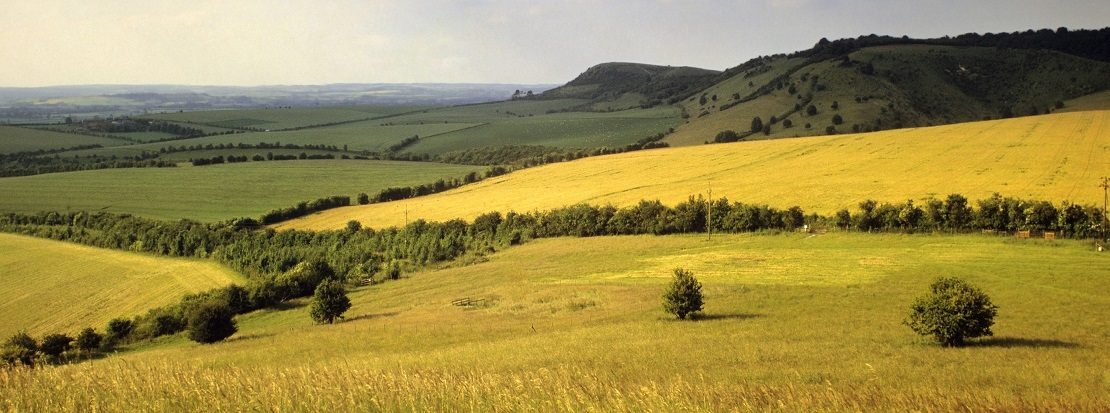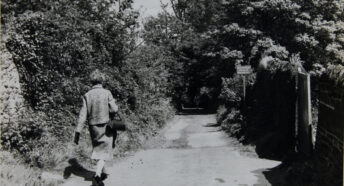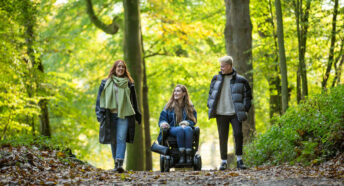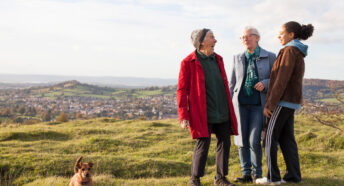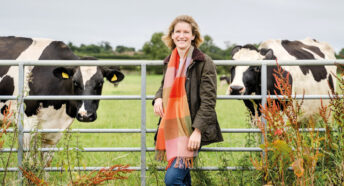'It’s a brilliant thing that I’ve been able to use my love of the natural world in my work': Mackenzie Crook's love of English landscapes
One of Britain’s best-loved comedy stars, Mackenzie Crook, tells CPRE why he loves wildlife-spotting, hates plastic and might have been a hedgelayer in another life.
‘I love filming out in the countryside. For Britannia, we did some shooting in the Forest of Dean, and there are some spectacular ancient woodlands over that way. And I go back to Suffolk, where we filmed Detectorists, a lot. You don’t have to go far out of the city to find idyllic landscapes and rolling hills. Filming Worzel Gummidge with Michael Palin on the highest point of the Chilterns – that was a glorious day!
‘Of course, there are always challenges. The whole point of the first Worzel Gummidge film was that it was a blazing hot, endless summer, where the seasons weren’t changing. But for the first nine days of the shoot it rained every day, which was rather disheartening! Luckily, with good lighting, you’re able to get away with it. It has to be torrential rain before it even shows up. The other thing, filming in the Home Counties, is that you’re under a lot of flight paths, so the noise is incredible a lot of the time.’
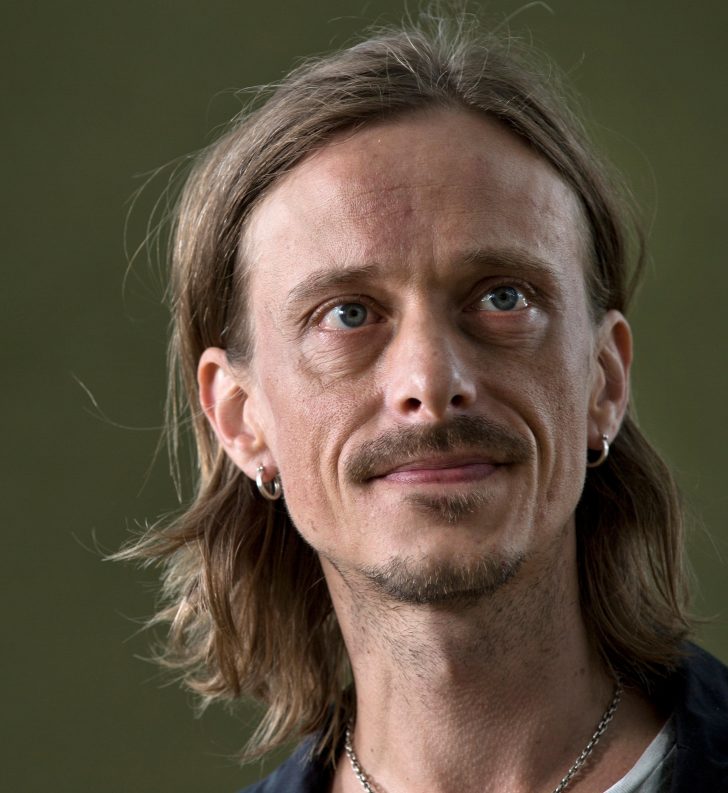
Getting close to nature
‘It’s a brilliant thing that I’ve been able to use my love of the natural world in my work. I love focusing on the little details of the landscape as well as the big picture. On the first day of shooting Detectorists, I asked the crew to keep an eye out for moths, toads or other creatures. I set up a moth trap one night and we caught a lovely lime hawk-moth, which we then filmed.
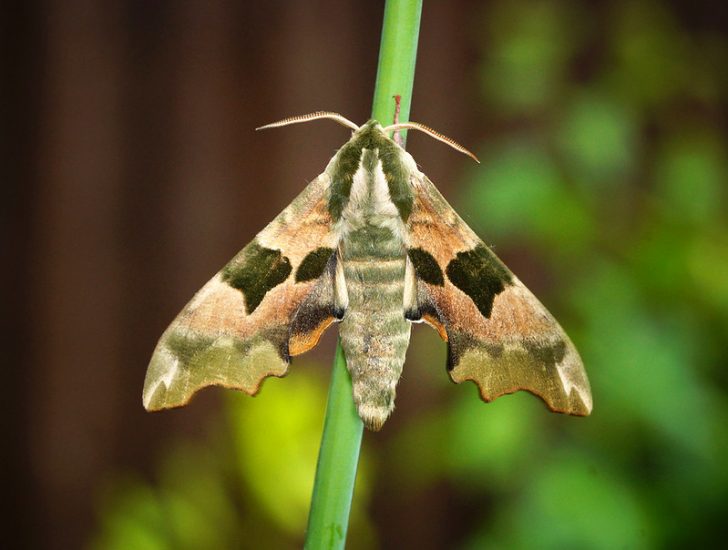
‘Like my dad, I believe it’s important to know the names of things. He grew up in north London and then moved out to suburbia, so he was learning about the natural world at the same time as us. I remember my dad quoting a line from The Fall and Rise of Reginald Perrin, where Reggie was complaining that his tombstone would say that he didn’t know the names of the birds and the flowers, but he knew the names of all the Sunshine desserts. That really struck my dad, and it struck me as well. He took me and my sisters on bike rides and encouraged us to learn the names of wildlife. That captured my imagination, and I ended up becoming even more knowledgeable than he was.
‘I grew up in a suburban village on the outskirts of rural Kent, a short bike ride away from the River Darent. That’s where I spent all my time: getting up close to the river and seeing what’s hiding under rocks. Looking over bridges into water, just looking for fish. I’d be out collecting crayfish and bullheads (also known as miller’s thumbs), and kingfishers would be going past, and water voles on the bank. I don’t think a lot of those are around anymore, or at least not in the same numbers. Things have changed a lot.’
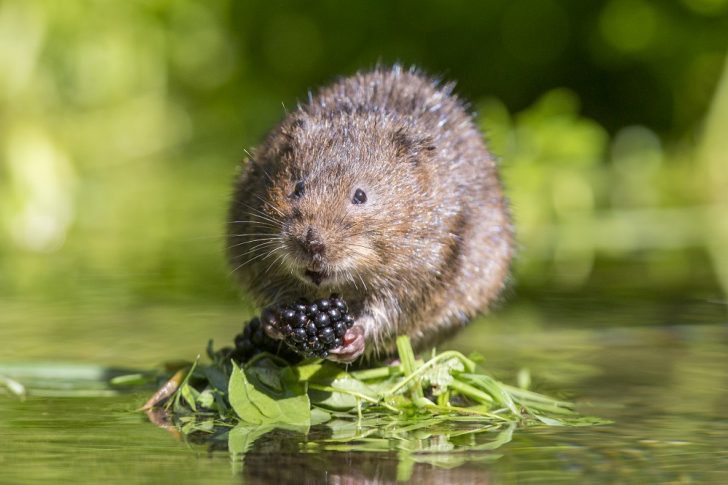
Changing our ways
‘I see plastic everywhere. I can’t believe the amount we get through, and it makes me wince every time I buy something I know will get thrown away. As long as companies like Coca-Cola keep using plastic, people are going to keep buying it, even if nobody actually likes plastic bottles. Supermarkets need to ban plastic. Like everyone, I’ve become very aware of the urgency of changing our ways. Wherever I can, I’m trying to do my bit. For example, by cutting down on air travel and trying not to eat red meat.
‘Children are already on board with the environment. They don’t need telling about it – they’re leading the way. So it would have been odd not to have an environmental message in my adaptation of Worzel Gummidge; of course it’s there. There were a bunch of articles that called it the new ‘woke’ Worzel Gummidge – and I hate that word. It should be a good thing, but it’s bandied around as if it was an insult. There are always people that would rather sneer at the message than get on board with it, and we have got to stamp that out.
‘If kids in the cities don’t get the opportunity to go out into the countryside, it’s important to give them the chance to do so. A lot of children and young people are all over the climate change issue, but they’re not necessarily connected to the countryside. So I think kids still need to be encouraged to get out there, and helped to do that.’
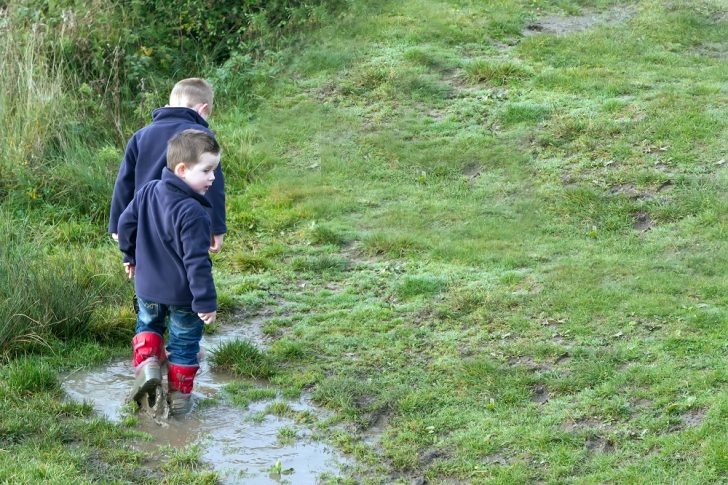
Understanding rural England
‘Embarrassingly, the label ‘the Thomas Hardy of sitcom writers’ came from something I said myself. It was something along the lines of: I hope Detectorists is the sort of thing Thomas Hardy would have appreciated. Which is a bit ridiculous, actually, as Hardy wasn’t exactly known for his humour! He’s one of my favourite novelists, though – his descriptions of the natural world and his understanding of rural England are, to me, unsurpassed.
‘I’ve been interested in what it means to be English ever since I did Jez Butterworth’s play Jerusalem. It was all about rural England and the state of the nation; our mythology and folklore. We delved deeply into those subjects in rehearsal, and it sparked a fascination in me, one that possibly had always been there, underneath.
‘What is Englishness? I don’t have the answer for you, but I think our culture, folklore and traditions are all part of that identity – and our landscape, and everything in it, is a really important part of it, too. Metal-detecting is an incredible, rather spooky, experience. Often you’re alone with the ghosts of the past, looking for signs of people that are long dead. And they’re everywhere, because every field in England has been trodden or inhabited before. We’re all walking around on archaeology.
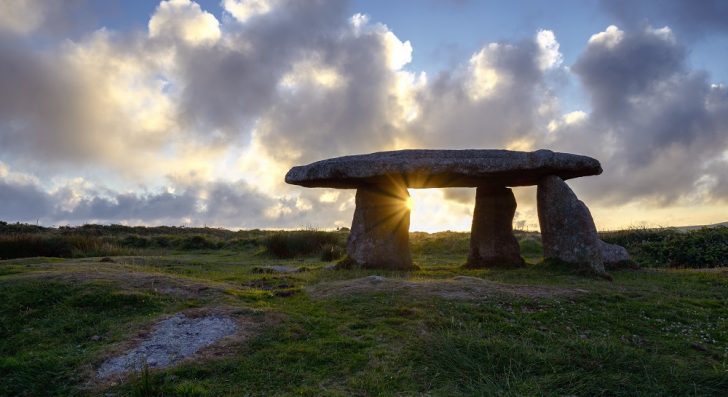
‘Music is another important part of Englishness. I’m not a connoisseur of folk music, but that’s definitely the sort of music I gravitate towards. The music I’ve got in both Detectorists and Worzel Gummidge is, I think, peculiarly English. That’s why I chose those artists, Johnny Flynn and The Unthanks.
‘I think English identity is less politically loaded now than when I was younger. Horribly, the Union flag and the St George Cross were often associated with the far right – and I think we’ve clawed that back a bit. Jerusalem woke me up to the fact that it’s okay to admit you’re English.’
Boltholes and fantasies
‘My favourite bolthole is the wood I own in Essex. A few years ago, I did a particularly lucrative job, and my first thought was that I should buy a Ferrari – I’d always hankered after one when I was young. But I decided there was no way I could justify that! Instead, I bought the opposite of a sports car: eight acres of woodland. I get down there regularly, but never as often as I’d like. Not that it needs me, of course – it’s been doing all right without me for the past four centuries.
‘If I hadn’t ‘discovered the stage’, I could see myself working in conservation. As a teenager, I joined the British Trust for Conservation Volunteers and learned drystone walling, hedgelaying and other skills. When you see a properly laid hedge, and it’s rare that you do, it’s a beautiful thing.
‘I think Michael Palin gets away with the hedgelaying bit in Worzel Gummidge. He looks like he knows what he’s doing! It was the wrong time of year for hedgelaying, and I was really worried about that, but the producer kept saying ‘For God’s sake, just let it go!’ Those sort of pedantic details always worry me, but I have to let it go sometimes.
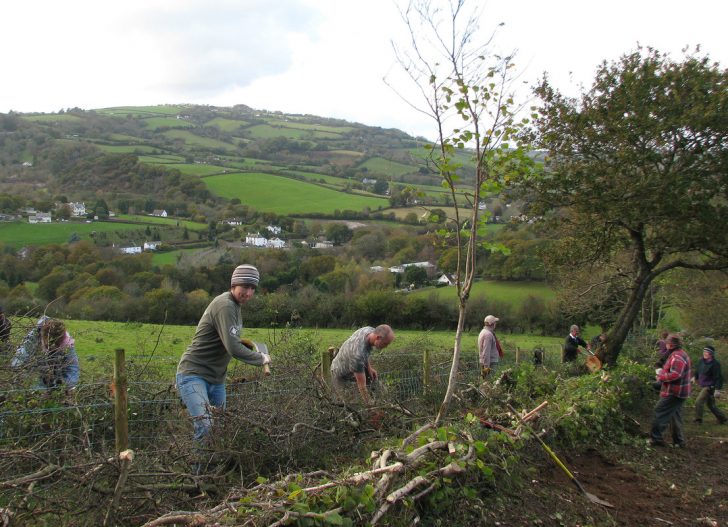
‘I’ve got a robin in my garden that feeds from my hand. He’s called Winter George. He’s my constant companion, and has been for three years. It’s got to the stage now that if I go outside and I don’t have any mealworms, he’ll come and peck me. I’ve got this little fantasy that the robin and I are friends, but I know he doesn’t really care about me; he cares about getting his next meal. Maybe the way to get kids interested in nature is to emphasise that side of things – how everything’s just fighting for survival out there! It’s brutal and fascinating.’
A version of this article was originally published in CPRE’s award-winning magazine, Countryside Voices. You’ll have Countryside Voices sent to your door three times a year, as well as access to other benefits including discounts on attraction visits and countryside kit from major high street stores when you join as a CPRE member. Join us now.
